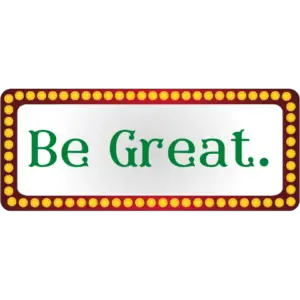Popularized in the television show Sesame Street by the show’s wizard who used the phrase when his tricks went wrong.
The words most commonly associated with magic are abracadabra, alakazam, hocus pocus, Jantar Mantar Jadu Mantar (Hindi), and presto chango. Fictional series often contain characters with magical powers that are accessed through the use of their own magic words as well.
These cryptic, strange, and sometimes funny words and phrases are used by wizards for a variety of reasons. Other wizards use them as a kind of catchphrase for people to identify with the miracle they are witnessing. Magicians use them while performing a trick to create tension and surprise, or to distract the audience and divert the audience’s attention away from the trick so they can perform the trick smoothly.
Magicians usually say this before revealing something that will lift the audience to a higher level of faith. The most important reason wizards choose certain magic words is because they sound good and fly off the tongue.
Craig Conley, a magician, writes that magic words used by conjurers may come from “pseudo-Latin phrases, meaningless syllables, or esoteric terms of religious antiquity,” but what they have in common is “language as a whole.” In this article, I have explored an extensive list of magic words used by real wizards, wizards, and famous fictional characters. Magic words used by real wizards, wizards and famous fictional characters.
Magic Contains a Large Amount of Jargon
From specific terms for the type of equipment and cards you use, to specific names for secret pockets hidden in a wizard’s jacket, there are many terms you need to know to put your magical knowledge into action. For example, the wizard might say “Name your card for the first time” or “Make up a word for the first time” to add some mystery to the trick. The reason wizards say “For the first time” is to create the impossibility, the expectation, the wonder, and the magic of the trick.
The reason magicians say Wallah is because it sounds great, it comes off the tongue beautifully and tells your audience that the trick is done. The reason wizards say “Open Sesame” is because it sounds fun, off the tongue, easy to understand, extremely positive and memorable, and “Open Sesame” is known for opening doors. The reason wizards say “Abracadabra” is because it’s fun and easy to pronounce, sounds good, has a positive vibe, and indicates a magical moment.
The syllable has a positive aspect, making it a fun word to say with enthusiasm, and is usually used to signify the end of a trick. Perhaps the most famous magic phrase of all, usually said when performing a trick, is Abracadabra. Perhaps the most popular of all, abracadabra is a word magicians use when they want something to appear or when a trick is revealed. The word Abracadabra comes from ancient symbols that were believed to have magical powers and cast spells.
The History of Abracadabra
Abracadabra was first used in magic in the 2nd century by Serenus Sammonicus (Caesar’s physician), who recommended that the word be worn in an amulet to protect against malaria. Since the early 17th century, hocus pocus has been used by magicians as a spell to perform tricks.
When it was first coined though, wizards could reasonably expect such exotic-sounding phrases to fool some of the audience into believing that mysterious powers were being summoned. Hocus pocus is now seen as abracadabra, shazam and izzy wizzy, let’s get down to it, which as a stage patter is used mostly by comedy magicians.
Since most wizards invite children to do some tricks, this works great because children can say abracadabra without difficulty. It may be necessary for children’s entertainers to have the child, lifted onto the stage, say the magic word, so in this type of activity it is important that the words are easy to say and easy to remember.
For example, someone might be doing a presentation presentation, and when they press a button to go to the next slide, they might say “Abracadabra” as if it happened by magic. The magician can also indicate something by saying the word “Wallah” to show that magic has happened. This category of magical effects is achieved when the wizard causes two objects to swap places with each other. Fairy dust is simply an excuse for the wizard to reach into his pocket to disappear or create an item.
A Brief Summation of Magic Words
This magical term refers to when the wizard has something hidden in his hands, or when he appears to disappear while hiding the item in his hands. The invisible deck is used in the invisible deck trick where the magician appears to be able to predict and create the exact card the spectator says from an unopened deck of cards. The sei is a way of showing that the magician cannot recognize the spectator’s card.
In most cases, when I say the magic word, it will be the name of the company or client I work for. What David Abram means is that it is no coincidence that the word “spell” has a double meaning: to arrange the letters in the correct order to form a word or to cast a spell.
British comedy wizard Tommy Cooper allegedly used the catchphrase while performing a successful (or more often unsuccessful) stunt. Magicians obviously need to sound exotic and magical, so mundane words are of little use. Out of necessity, stage magicians replaced magic words with sound and smoke effects, music and flashes.

